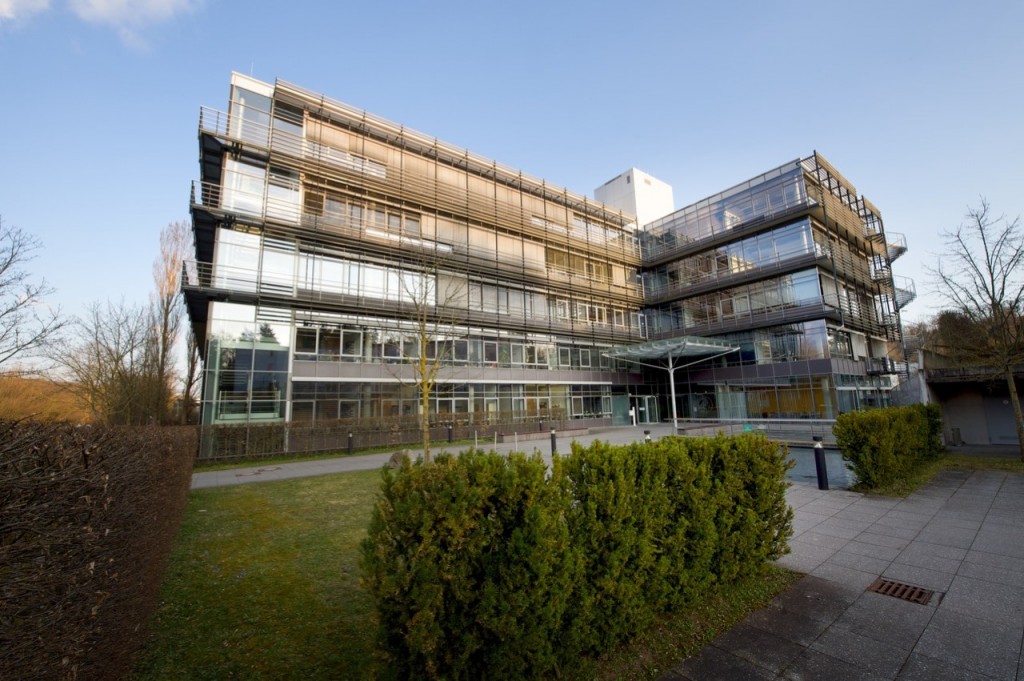David Isaksson
The first batch of students from the WASP-AI graduate school has just returned from a weeklong study trip to Germany. There they visited two universities, RWTH Aachen University and Technical University Darmstadt, and one large research institute, Max Planck Institute for Intelligent Systems. The PhD students are all from the AI/MLX and AI Math track.
Elin Anna Topp, associate professor at the Department of Computer Science at Lund University, was one of the organisers.
“The graduate students and senior staff that I’ve talked to all say they are pleased with our visit. Many of the students got to know researchers, with whom they might collaborate in the future”, said Elin Anna Topp.
The group from WASP consisted of, apart from Elina Anna Topp, six senior researchers – Fredrik Heintz, Warwick Tucker, Jun Yu, Torbjörn Lundh, Danica Kragic, Thomas Schön – and 56 PhD students.
The first stop was The Max Planck Institute for Intelligent Systems. The group visited MPI’s two campuses, in Stuttgart and in Tübingen.
“At MPI senior researches from WASP and MPI gave overview presentations. After that, the PhD students, both from WASP and MP, had a session with pitch and poster presentations. And, of course, we got to see some of the MPI laboratories in a tour at each site” explained Elin Anna Topp.
“The research at MPI in Stuttgart often concerns applied AI and robotics, so it was the WASP PhD students with research in areas close to that who pitched their projects there, while the more theoretically oriented research was in focus for the day in Tübingen,” said Elin Anna Topp.
The trip continued to Rheinisch-Westfälische Technische Hochschule Aachen, RWTH.
“Our main contact, Holger Rauhut, was from the department of mathematics. His lab was especially appreciated by our AI Math graduate students. But also, other RWTH researchers from different areas held presentations, joined the poster sessions and offered lab tours, said Elin Anna Topp.
The group did not visit any companies during the trip since the focus of WASP AI is on academic research, rather than applied AI.
“One of the goals in WASP AI is to understand the fundamental methods within machine learning. It’s more about math and theory than to get autonomous systems to work right away”, said Elin Anna Topp.
The last stop for the group was Technische Universität in Darmstadt. There they visited Jan Peters’ lab, which is successful within the areas of robotics and machine learning.
“One reason for a trip like this is to get the PhD students to discover research groups that do similar things as they do. But it is also important for the students to learn more about research areas that are not so close to what they do right now, but might become relevant later.”, said Elin Anna Topp.
As an example, she mentions The Human Technology Center at RWTH, where they are researching social robotics.
“It’s essential that the students learn about the importance of verifiable and ethical artificial intelligence. It might not be relevant for their research right now, but eventually, it will be”.
Elin Anna Topp believes the study trip made the researchers they met more aware of WASP.
“That we are part of WASP might make them more interested in collaborating with us. I think our trip was interesting not only for us but also for the researchers we met”, said Elin Anna Top
Published: November 21st, 2019



